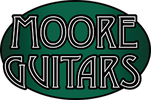So, I am playing bass for a blues group at a county fair. I notice two older gentlemen standing at the side of the stage with their arms crossed, pointing and commenting to each other. They must be the musicians in the crowd.
During our set break, one of them approaches me and starts asking about the vintage bass I had brought for the job. As he is leaving, he points at my 8-pedal pedalboard and quips, “you know you don’t need all of that stuff, right?” I just kind of chuckle and reply that since I have a big boy job, I like to have a few toys at my feet.
It made me question why I have “all of that stuff.” My journey into effects pedals started in the 90’s. I wanted to emulate the sounds that I had heard on a lot of the grunge/noise rock records that I had immersed myself in. So, I bought a Big Muff and a Small Clone. My playing, and my billfold, have never been the same. Having something other than the sound of my bass guitar into an amp (a Fender JP-90 into a Peavey TNT 130), not only changed my sound, but it also changed the way I played.
My pedalboard tends to morph and change as I encounter different gigs and musical situations. Here are some of the effects that are always on my bass board.
- Tuner pedal- An absolute necessity!
- Overdrive- I like ones with either a blend knob or bass control to dial back some of the low end that can sometimes be lost in the gain
- Fuzz- How else can you assert your dominance over the guitarist?
- Modulation- Chorus is my go to but, I love a phase or flange pedal
- Compressor- You will be loved by every sound technician you work with.
- Preamp/DI- I play primarily passive basses, so the extra tone shaping can be beneficial
I’ve never really used time based effects (reverb and delay), to great effect in my setup. This is totally a comfort thing for me and now that I have a higher end piece with great sounds, an Eventide H9, I am trying to push myself to use them more.
I don’t buy into the idea that you should only use effects designed for bass in my rig. These pedals don’t care what you send to them. With that being said, certain effects work better than others at reproducing the low end we all crave. Certain features such as a blend control (to blend in your original, unaffected signal) or bass control are usually my favorites.
As far as pedal order, we could get into deep conversation and probably never agree on it. Do you want to want to phase your distorted signal, or do you want to distort your phased signal? Those are the questions you should ask of yourself as you put your board together. What are your favorite players (guitar or bass) playing through and in what order. That makes for fun experiments. Most importantly, be creative! There are no rules in rock and roll or bass playing!
Effects can be imagination stations. The same lines, licks, and riffs become transformed into something else entirely. Just like having different instruments and amplifiers can alter our playing style and musical approach, effects open us up to something different in how we approach our beloved rumble makers.



